 Petzlover
Petzlover Borador is originated from United States but Sage Koochee is originated from Afghanistan. Borador may grow 32 cm / 12 inches shorter than Sage Koochee. Borador may weigh 54 kg / 119 pounds lesser than Sage Koochee. Both Borador and Sage Koochee has almost same life span. Both Borador and Sage Koochee has almost same litter size. Borador requires Moderate Maintenance. But Sage Koochee requires Low Maintenance
Borador is originated from United States but Sage Koochee is originated from Afghanistan. Borador may grow 32 cm / 12 inches shorter than Sage Koochee. Borador may weigh 54 kg / 119 pounds lesser than Sage Koochee. Both Borador and Sage Koochee has almost same life span. Both Borador and Sage Koochee has almost same litter size. Borador requires Moderate Maintenance. But Sage Koochee requires Low Maintenance
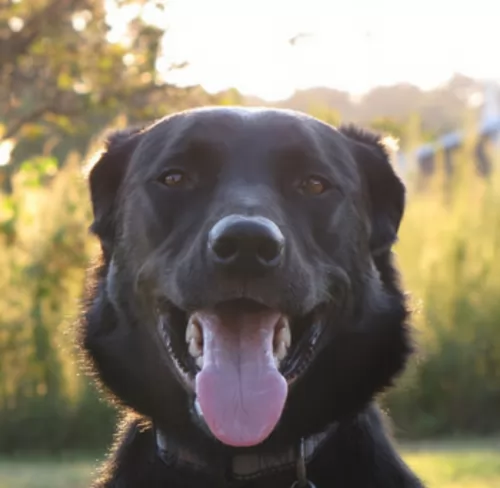 Hybrid breeds have become popular in the last decade or so. The Borador, hailing from Northern America, is one of these popular crossbreeds between two very popular dog breeds - the Border Collie and the Labrador Retriever. Between the two dog breeds, you get extraordinary intelligence, energy and a wonderful temperament.
Hybrid breeds have become popular in the last decade or so. The Borador, hailing from Northern America, is one of these popular crossbreeds between two very popular dog breeds - the Border Collie and the Labrador Retriever. Between the two dog breeds, you get extraordinary intelligence, energy and a wonderful temperament.
You first started hearing about this dog breed in the early 21st century. However each of the two breeds brought together to produce the Borador have got reasonable lengthy histories.
 Known also as the Kuchi Dog, the Sage Koochee is a dog that was bred more for his characteristics than his looks. He was bred to be a protector and guardian and named after the Afghan Kochi people.
Known also as the Kuchi Dog, the Sage Koochee is a dog that was bred more for his characteristics than his looks. He was bred to be a protector and guardian and named after the Afghan Kochi people.
Referred to as the Kuchi or Sage Kuchi, this working dog has always helped nomads with guarding their caravans and livestock. The dog has genetic resemblance with the Central Asian Ovcharka but isn’t recognized as an official breed by any of the major kennel clubs.
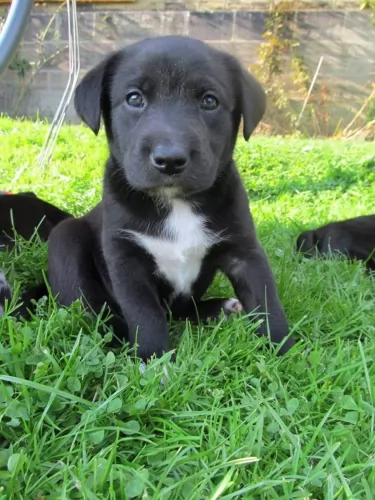 The Borador is a medium to large sized working dog which is well well-proportioned and muscular. His size can’t be carved in stone, but generally he will be in size from 40 – 57cm and weight in the region of 18 and 26 kg. His coat can vary significantly, leaning more towards one particular breed than the other. So the coat can be short and smooth or long and wavy or straight.
The Borador is a medium to large sized working dog which is well well-proportioned and muscular. His size can’t be carved in stone, but generally he will be in size from 40 – 57cm and weight in the region of 18 and 26 kg. His coat can vary significantly, leaning more towards one particular breed than the other. So the coat can be short and smooth or long and wavy or straight.
The Borador essentially has medium-sized ears which are floppy and the tail is medium-length. Sometimes the Borador will have the black and white coat of the Border Collie or he could have a brownish/beige colour from a golden Labrador.
When your energetic Borador is trained and socialized, he becomes a great family member and he gets on well with children and other pets.You’ll find that he often has the sweet, amicable temperament of the Labrador while having the sharp, alert intellect of the Border Collie.
Most Boradors are also good watchdogs and will bark at strangers, but because they are so amicable, from barking, they can quickly become a stranger’s friend.
 The Sage Koochee is a large molosser dog, although they do vary quite a bit in height. This is because they generally come in 3 varieties.
The Sage Koochee is a large molosser dog, although they do vary quite a bit in height. This is because they generally come in 3 varieties.
They can stand at between 58 to 89cm in height and they weigh between 38 to 80kg. This is because this dog is divided into 3 types. The coat of this dog can be short, medium or long, and colors can vary quite a bit as well.
These are moderate, seasonal shedders. Their tails are usually docked to about 1/3 of their length and their ears have been traditionally docked too. They are very territorial and won’t show any tolerance to strangers coming onto the property. He also tends to be aggressive towards other dogs.
These dogs are tough and fierce and also immensely intelligent. Such a dog would have to be trained and socialized or you would land yourself with a strong-willed, disobedient dog.
Once they’ve had training, they are friendly, obedient and affectionate towards their owners, but aren't a good choice for children. They are extremely territorial and make good watchdogs,being prepared to fiercely protect their human family.
The very nature of this dog makes it not suitable for life in the city. It would be terribly frustrated in small spaces and can become aggressive.
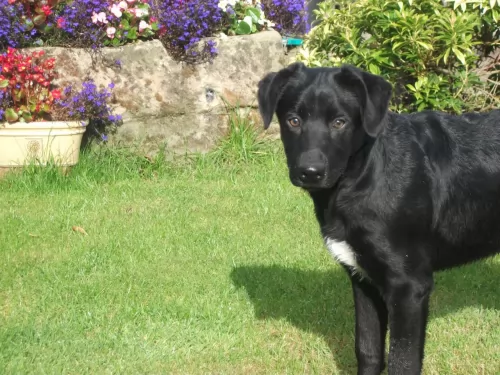 The Borador is an intelligent dog that can be trained. He is a sociable dog and is friendly to all members of his human family, willing to extend a paw of friendship to strangers as well.
The Borador is an intelligent dog that can be trained. He is a sociable dog and is friendly to all members of his human family, willing to extend a paw of friendship to strangers as well.
The Borador is also a friend of children and other pets. This combination of breeds is very energetic and you can’t just leave him for days on end in the backyard. He will need exercise and walks as well as ball games. When you become involved in his games, you tighten the bond between you and this is what this social, outgoing dog loves.
The Borador is going to make a wonderful pet because he is a mix of two very popular dog breeds. Give him all he deserves as a member of your family and you’ll have the perfect friend and companion for life.
 The Kuchi has always been vigilant with guarding livestock, and these tough dogs did the job of guardian and protector extremely well.
The Kuchi has always been vigilant with guarding livestock, and these tough dogs did the job of guardian and protector extremely well.
They’re hardy too, used to coping with extreme weather conditions, from hot deserts to freezing mountain areas. These dogs are powerful and independent and they are also dangerous.
With good training and socialization they can become loving and loyal, but they require a strong, firm owner, and don’t come as recommended if there are children in the home.
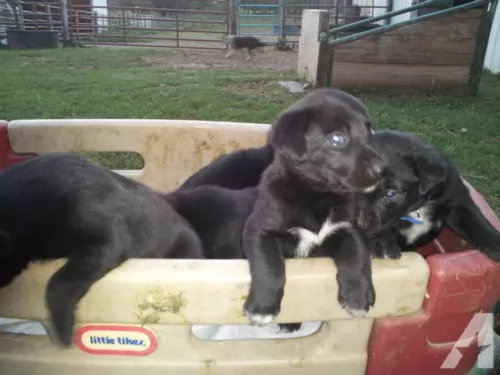 You won’t find serious health problems with your Boradors, as he is a robust breed. Nonetheless, there are some ailments that as a dog owner, you need to be aware of for your Borador.
You won’t find serious health problems with your Boradors, as he is a robust breed. Nonetheless, there are some ailments that as a dog owner, you need to be aware of for your Borador.
Skin ailments – you don’t want to see your dog scratching or licking continuously so you want to be aware of things like parasites and allergies. Skin diseases can be debilitating for a dog and can even require lifelong treatments. Yes, corticosteroids can help with itchy rashes, but the best move is to try and avoid skin ailments by ensuring a nutritious diet rich in minerals and vitamins and which includes some raw meat.
Always be checking your pet for skin problems such as ringworm, caused by a fungus and found on your dog and which appear as scaly patches and hair loss.
Hip Dysplasia – an inherited problem with the hip joints. No-one can predict when hip dysplasia settles in, but it can be as early as 4 months of age.Your dog shows signs of stiffness and may not be his energetic self. Some dog owners want to see certificates first that the parents of puppies have been hip-cleared before they buy a puppy.
 The Kuchi breed is healthy and doesn’t have any particular health issues. Things to look out for are bloat, skin allergies, cancer and parasites.
The Kuchi breed is healthy and doesn’t have any particular health issues. Things to look out for are bloat, skin allergies, cancer and parasites.
Parasites are a common in many dogs. Fleas and ticks are external parasites, but intestinal parasites can be a real nuisance too and endanger your dog’s health.
These parasites live within the dog’s gastrointestinal tract. They can be a host of terrible worms such as roundworm, hookworms and tapeworm among others. The parasites are usually transmitted when the dog ingests contaminated food, soil or even feces.
These parasites can cause endless problems for the dog, from weight loss to diarrhea to vomiting. You will need to get your pet to the vet.
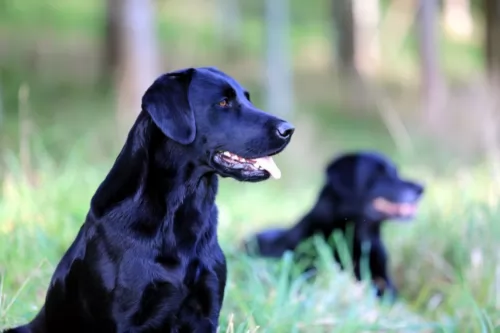 The Borador may have inherited the moderate shedder characteristics of the Border Collie or the more intense shedding of the Labrador Retriever. He will require a good brush at least twice a week to ensure you remove loose hairs so as to keep his coat shiny and healthy. Check your dogs ears too for yeast infections.
The Borador may have inherited the moderate shedder characteristics of the Border Collie or the more intense shedding of the Labrador Retriever. He will require a good brush at least twice a week to ensure you remove loose hairs so as to keep his coat shiny and healthy. Check your dogs ears too for yeast infections.
Puppies and young Boradors are full of energy and they will require a diet that has an excellent protein content. If you’re unsure about how to feed your Borador, speak to your vet as some dogs need more calories depending on their level of activity.
Certainly if your dog has allergies, you may have to look for a special diet but otherwise a top brand commercial dog food can be a good choice if you include some home prepared food such as rice, vegetables and meat. It is important to give your dog some raw meat every now and then as well. Always have a bowl of cool, fresh water available for your pet 24/7.
 A nutritious commercially manufactured dog food for large working dogs will be required for this strong, energetic dog. You want to provide it with some variety, so some homemade food added into the dry kibble twice a week will ensure he is healthy and content.
A nutritious commercially manufactured dog food for large working dogs will be required for this strong, energetic dog. You want to provide it with some variety, so some homemade food added into the dry kibble twice a week will ensure he is healthy and content.
Home-made food such as boiled chicken, brown rice or pasta and spinach, sweet potatoes and carrots all boiled slowly together will delight your pet. You just chop it up and add it to the dry kibble twice a week and your pet will never look back.
For his skin and coat, you can try to add in a little bit of raw meat occasionally.Dogs thrive on simple, consistent meals like this – nothing weird and spicy so as to avoid stomach upsets.
Groom your Kuchi dog by brushing him twice a week and check simultaneously for any lumps you may find on him.
Trim his nails.
Check his eyes and make sure they are clear with no signs of discharge.
Check inside the mouth for rotten or bad teeth as he can’t tell you if one is rotten and causing him tremendous pain and discomfort.
Make sure his vaccines are up to date to avoid life threatening canine diseases.
Provide him with a nice, warm dry place to sleep.
Make sure he has access to shade and sun when he’s outdoors.
Have him or her spayed or neutered to avoid puppies